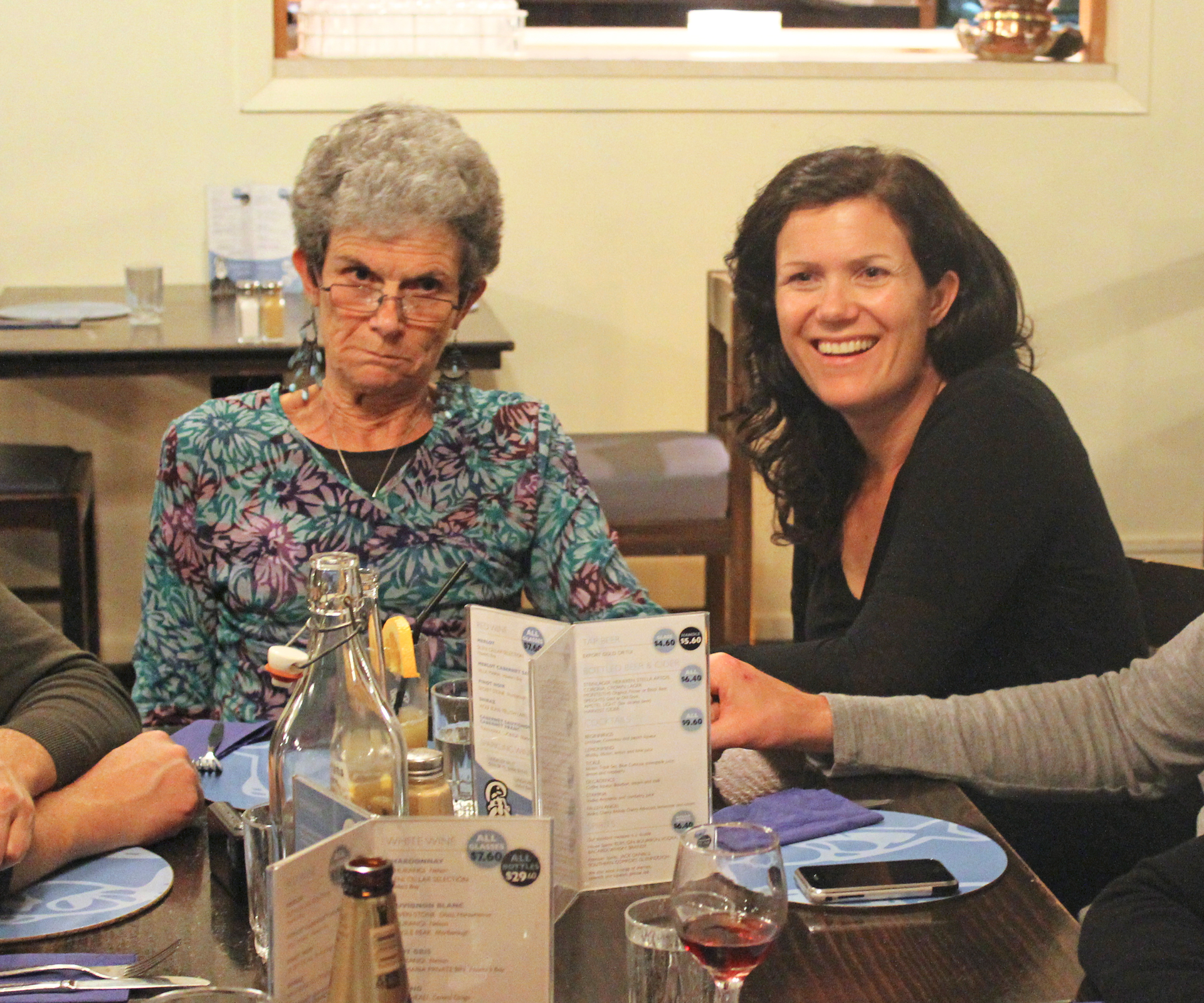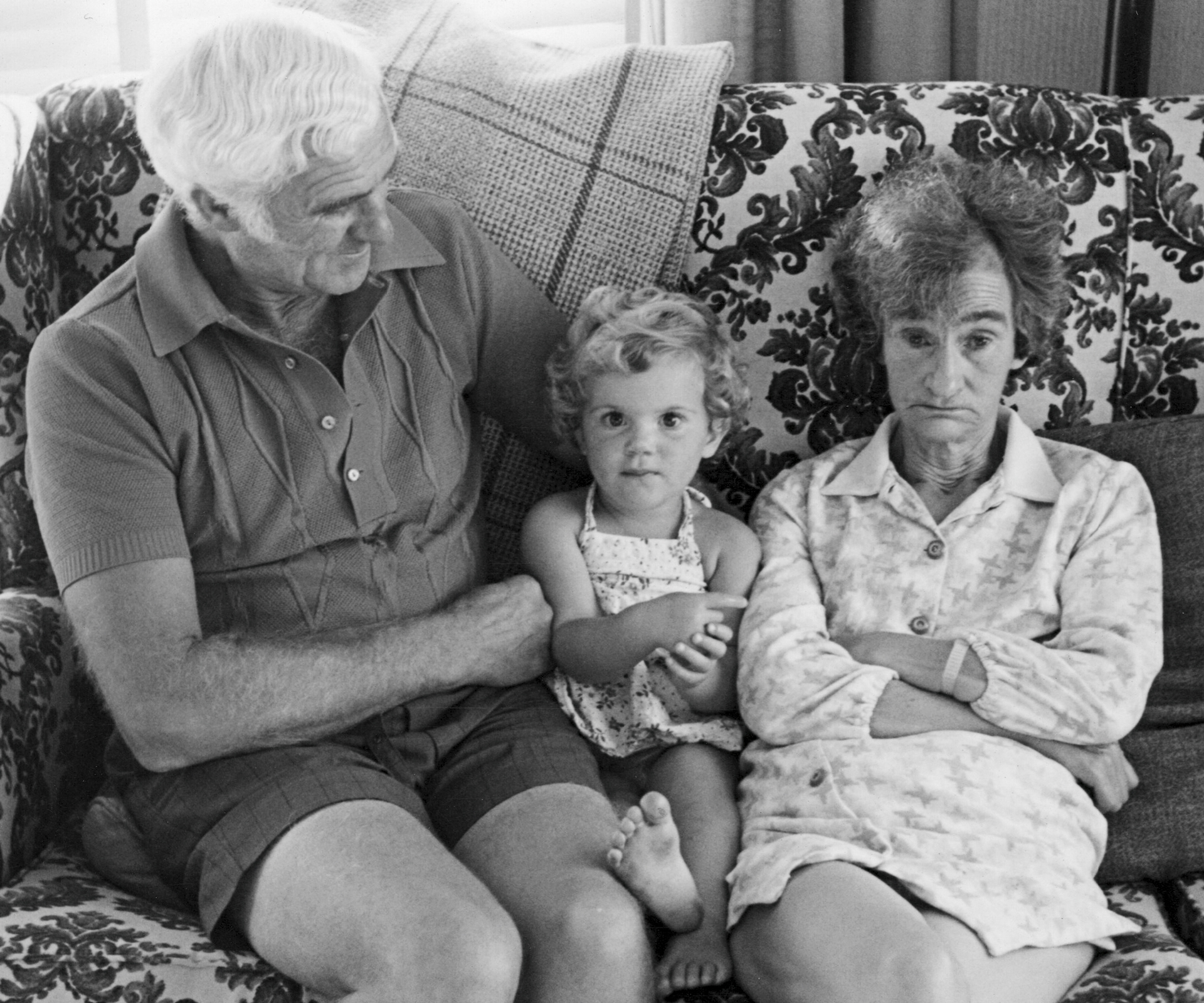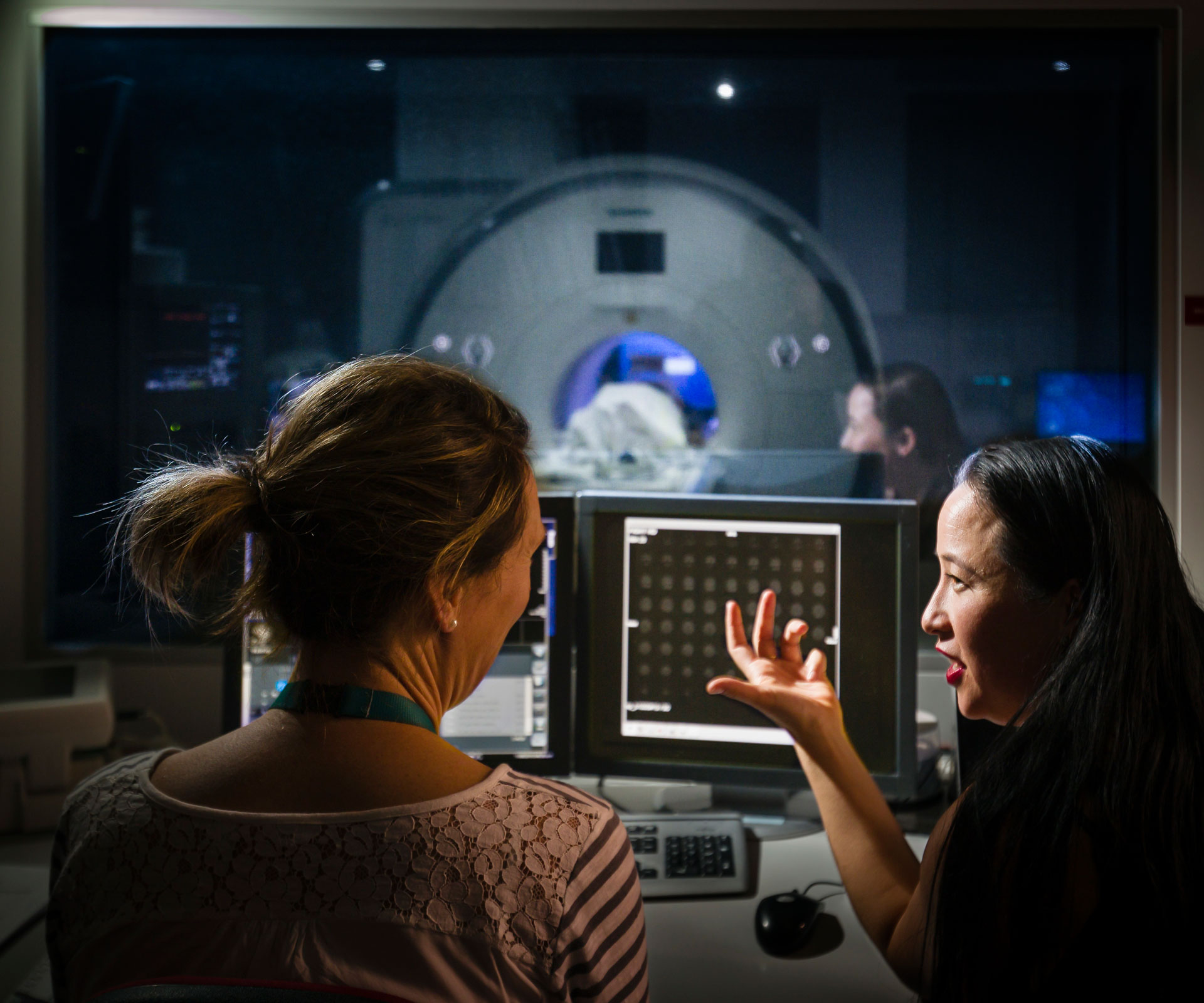For Wellington film editor Bridget Lyon – daughter, wife, mother of two – a single faulty strand of DNA has robbed her of the “blissful ignorance” of how she will die. Like her two older brothers, she’s inherited the gene for Huntington’s, a neurodegenerative disorder she watched slowly destroy the mind and body of their mother, Judy, who fought the disease every step of the way for two decades before her death in March.
Since her own positive test nine years ago, Lyon has lived with the inevitability that she, too, will follow her mother’s path. In a way, she says, it’s like going through the stages of grief after losing someone you love. Except what she’s grieving for is her life.
“Knowing is quite hard on your psyche. It doesn’t sit well with the normal human mind,” she says. “We all walk round in denial about death, so to be told you’re going to die this way is really difficult to cope with. It still toys with me in different ways. But having years and years to deal with what’s happening, I feel like I can try to get myself in a position to cope, and to have the tools to deal with the onset of symptoms that will eventually take away who I am.”
Judy, a former school teacher, confronted her diagnosis head-on, speaking out publicly to raise awareness of a disease that for many remains a shameful family secret, and is often desperately misunderstood. Lyon’s grandmother, Mavis, who also had Huntington’s, was treated for a nervous breakdown.
Lyon began filming her mother in the late 1990s, to capture her story while Judy was still well enough to be able to tell it. At the New Zealand International Film Festival last year, she and her partner, filmmaker Jeff McDonald, premiered their documentary, The Inheritance – a raw, confronting look at what’s been described as the worst disease known to man.
Following the invisible thread Huntington’s has woven through the family, it traces the line back to a small Scottish village where Bridget’s great-great-great-grandmother, Margaret, was sent to a lunatic asylum in 1814. James, the youngest of her seven children, was only two. Years later, he followed one of his sisters to New Zealand. “Was he running away from the spectre of his mother’s madness?” asks Lyon, who narrates the documentary (now available on DVD or video on demand at theinheritancedocumentary.com). “We will never know, but he took with him an inheritance deep within the fibre of his being.”
It’s a tough watch – too tough, perhaps, for families still coming to terms with the awful reality of Huntington’s. At screenings, Lyon would sometimes look up and see a look of horror on the faces of people she knew, as the realisation dawned that one day this would happen to her.

Bridget’s mother, Judy, spoke publicly about living with the disease.
Now 43, she finds herself constantly watching for signs of deterioration. Occasionally words are elusive creatures that slip from her grasp. Yoga and meditation calm her mind (anxiety is one of the early symptoms) and she runs regularly to try and keep her physical decline at bay (studies have shown an active lifestyle can delay onset).
“Sometimes I can handle it; sometimes I can’t,” she says. “I saw my mum fight this disease and I saw her inevitably lose, so I kind of know all of this is just about holding back the tide. I remember thinking every time we found something that this would help, this would be the thing. But it never was.”
Lyon met her partner, Jeff, when she was working as a film editor in Sydney, and became pregnant unexpectedly– only to discover she was gene-positive, too. The couple, who moved back to New Zealand two years ago to be near Lyon’s parents, have talked openly with both their boys about Huntington’s and what it might mean for their family. Their elder son, who’s now 11, will be able to choose whether he wants to know his own status once he’s 18. For his brother, who’s eight, the thread has already been broken. He was born through IVF, using a process called pre-implantation genetic diagnosis (PGD) to select an embryo free of the gene. “It’s incredible to think it stops there,” says Lyon. “I just wish that was true for both of them.”
In New Zealand, 40 or so PGD cycles are state-funded each year for couples at high risk of having children with a serious genetic disorder such as Huntington’s. The procedure, which costs more than $20,000 for private patients, is performed at Fertility Associates in Auckland. Specialist Mary Birdsall calls the technology “transformative”, but says ideally eggs need to be collected when a woman is in her 20s, to give the best chance of producing a healthy baby. Three of the four embryos produced during Lyon’s first IVF cycle tested gene-positive.
Making the documentary took her on a journey not only to honour her mother, but also to find hope for her child. For generations, people have been hidden away because of Huntington’s disease; now they’re coming out fighting. On Twitter, she recently stumbled across a “gorgeous, cool-looking” mother of four, Desirae Collett, whose handle is @kissmyarseHD. “I’ve got HD,” reads her tagline, “but HD don’t have me.”
Lyon hasn’t given up on herself, either. She’s signed up with Enroll-HD, a global initiative that offers the chance to become involved in clinical studies and trials enroll-hd.org. With knowledge comes understanding, she says, and understanding dilutes fear.
“You have so few things in your arsenal when you’re facing the inevitability of this disease. Thinking about what I can do makes me feel less like it’s defeating me.”
Enroll-HD currently has two study sites in New Zealand: Auckland, contact Dr Richard Roxburgh and Virginia Hogg, ph (09) 307-4949 ext 25747; and Christchurch/Dunedin, Dr Tim Anderson and Laura Parmentier, ph (03) 378-6078.Anyone aged 18 years or over who has a family member with Huntington’s or who is at risk of the disease can take part.

.jpg)
